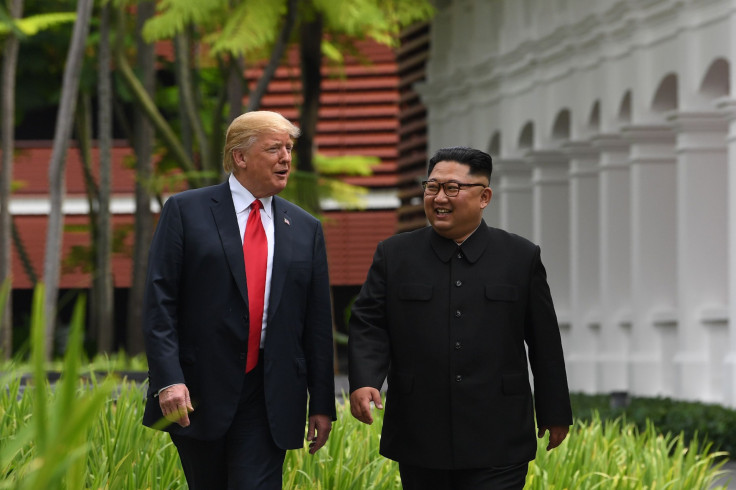North Korea Sanctions Staying Until Complete Denuclearization, DPRK Exploring Alternative Energy Sources

The sanctions against North Korea will not be lifted until DPRK implements complete denuclearization of the country, as was promised by its leader Kim Jong Un in the Singapore summit in June, U.S. Ambassador to South Korea Harry Harris said Thursday.
"Our goal remains the same: to achieve our shared objective of a final, fully verified denuclearization of the DPRK as committed [to] by Chairman Kim in Singapore," Harris said during a forum hosted by think tank Chey Institute for Advanced Studies, Yonhap News reported. "The United States and our South Korean ally are in complete agreement that sanctions will remain until DPRK denuclearizes.”
As both President Donald Trump and Kim prepare for their second summit, to be held in Hanoi, Vietnam, from Feb. 27-28, Harris said he hoped for a "brighter, more secure and more prosperous future" for North Korea. During the summit, the two leaders will focus on the steps Pyongyang was supposed to take toward denuclearization and the "corresponding measures" the United States would agree to in exchange, which could include partial sanctions relief, humanitarian aid, and a formal declaration by the White House acknowledging an end to the 1950-1953 Korean War.
Harris also stressed Washington's policy for a "free, open" Indo-Pacific. “Developments on the Korean Peninsula are an important part of the U.S. commitment to a free, open Indo-Pacific. This is not just the U.S.'s interests but in all of our nations' strategic interests," he said. "When we say open, we want all nations to enjoy open access to the seas and airways. And we want a peaceful resolution of territorial and maritime disputes, key to international peace.”
Meanwhile, an Associated Press report said North Korea was exploring alternative energy sources that were not restricted by the sanctions imposed against the nation, including tidal power and coal-based synthetic fuels.
North Korea has massive reserves of coal, which is currently used in thermal power plants and factories, fertilizers, for heating homes and making a fabric called vinylon. The regime will be looking to “gasify” coal in order to develop a substitute for motor oil – something that was not tried before because it was inefficient and expensive.
“The project appears to provide a significant benefit to the DPRK, in terms of supplying fuels to compensate for petroleum product imports that run afoul of United Nations Security Council sanctions passed in the last two years, although the project will not completely replace all lost imports on its own,” according to a recent study for the Nautilus Institute for Security and Sustainability by David von Hippel and Peter Hayes, two of the foremost experts on the issue.
North Korea has also been interested in tidal power for a long time. Ten years ago, Glyn Ford, a former member of the European Parliament, helped arrange a study tour for North Korean officials of a tidal power facility in the U.K.
“The bulk of the Korean Peninsula’s west coast is a rich tidal power resource,” Ford said in an interview with AP. “There are some detailed studies of the potential in South Korea and the same resources are there to be exploited north of the Demilitarized Zone.”
© Copyright IBTimes 2024. All rights reserved.






















